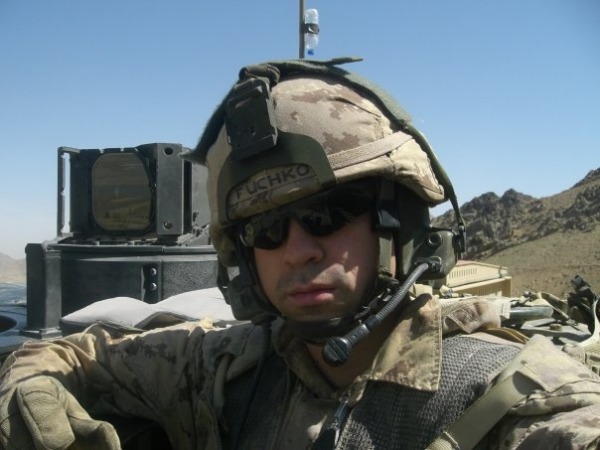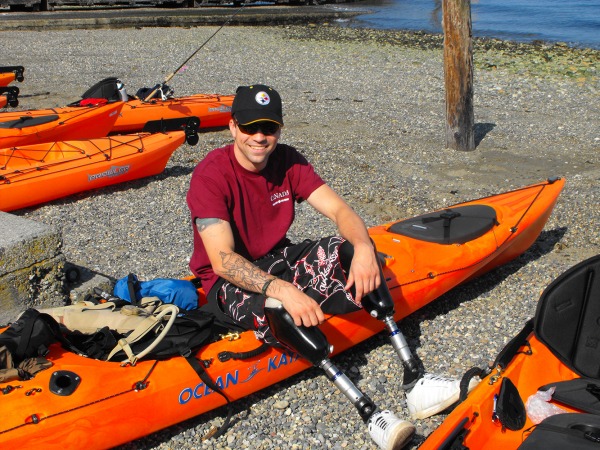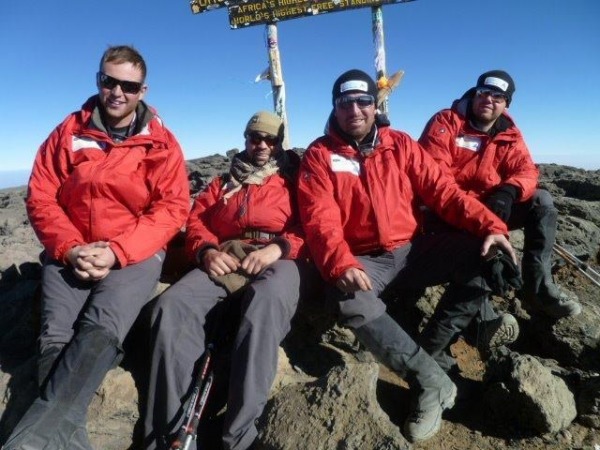Home | Military and Sport | Sport Veterans
Mark Fuchko
PreviousNext
Few people have the sheer willpower to overcome the worst adversities and yet still achieve the highest physical standards and work to do good for others. Mark Fuchko is one such person.
Fuchko joined the military in 2002 and by the end of December in 2005, he was deployed for a nine-month tour of Afghanistan in the National Command Element Security Platoon. Two years later, he was supposed to be deployed to Dubai, but was redeployed as a tank driver for a second tour of Afghanistan with B Squadron of Lord Strathcona's Horse (Royal Canadians). It was on this tour, at the end of March 2008, when tragedy struck and the vehicle Fuchko was commanding was struck by an IED (improvised explosive device). After the explosion Fuchko was trapped and unable to move for over an hour, "I looked down and my right leg was sitting in my lap." Fuchko thought he was going to die. Despite losing both his legs and flat lining three times in the initial stages of recovery, Fuchko pulled through and survived.
For lesser men or women the story would stop there. But Fuchko is not ordinary. He realized that through sport he had the chance to rebuild his life. Not content with playing sledge hockey, he joined a group of war veterans on a kayaking trip from Seattle to Vancouver. Soon after he joined a climb up Mt. Kilimanjaro, Africa's highest mountain that stands nearly 6,000 m above sea level. Yet Fuchko still had many obstacles to overcome. He had spent an entire year re-learning how to walk, his prosthetic legs were not designed for climbing mountains and the air at such heights is so thin it is astonishingly hard to breathe. In spite of all of these obstacles, Fuchko realized that he had a chance to prove that he had conquered his own tragedy but more importantly, he had a chance to do good for others in raising funds for the Royal Alexandra Hospital in Edmonton.
For Fuchko, the astonishingly hard climb was inspirational as he had overcome the worst that life has to offer but he could still live. "Your life's not over at injury and that realization was great for me."

Corporal Mark Fuchko joined the military in 2002. He was deployed to Afganistan twice, serving with the Lord Strathcona's Horse on his last deployment. He was injured while conducting an operation in the Panjeway district in Kandahar province. His vehicle struck an improvised explosive device and he lost both legs.
Collection: Private collections Mark Fuchko

Mark Fuchko was introduced to the Canadian military Soldier On Program while he was recovering from his injury. When he was injured he thought his life was over and credits the program with getting him back on his feet by introducing him to adaptive sport. He played on an ice sledge hockey team and kayaked from Seattle to Vancouver with a group of Canadian and American veterans. It was a challenging trip, requiring kayaking for hours of the day and camping at night.
Collection: Private Collections Mark Fuchko

In 2011 Mark Fuchko and other injured soldiers reached the summit of Mount Kilimanjaro in Tanzania. He was the only amputee on the team and the other members suffered from a variety of lower body injuries. They raised $1,000,000 for a surgical navigation suit for the Royal Alex Hospital in Edmonton, Alberta. He credits sheer determination and the will to succeed in getting him to the summit, which was one of the biggest moments in his life.
Collection: Private Collections Mark Fuchko

The Soldier On Program assists serving and retired members of the military community through its sport programs for injured or ill members. It also offers a strong support system not only for the soldiers but for their family members. Mark's advice for anyone facing such a life changing event is not to let your disability be a limiting factor in what you want to do.
Collection: Private Collections Mark Fuchko
Previous Next


